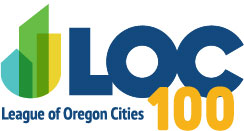LOC News
Call to Action: Resilient Efficient Buildings Package
In last week’s Bulletin, we introduced four legislative concepts that came out of the Resilient Efficient Buildings Task Force: SB 868, SB 869, SB 870, and SB 871. These bills had an informational hearing and a public hearing this week in the Senate Energy and Environment Committee. Amendments have been posted for three of the bills, but final amendments based on feedback are still being drafted.
The LOC supports the goals of these bills but remains concerned about fiscal impacts for cities with SB 870. This bill aims to establish a Building Performance Standard (BPS) for commercial buildings larger than 35,000 square feet to reduce their energy use and climate emissions over time.
The LOC is creating a survey that will be sent out on Monday, March 20, and is asking members to fill it out ASAP! The intention of this survey is to understand the fiscal impacts of SB 870 and to capture how many cities have government buildings larger than 35,000 square feet, their age, and what the building is used for (e.g., fire department, police department, libraries, city hall, community centers, etc.). This will help us to build a better picture of the true impact of this bill on our members.
SB 870 is modeled after similar policy in Washington State, and is in line with the American National Standards Institute’s standards for Energy Efficiency in Existing Buildings (ANSI/ASHRAE/IES Standard 100).
The upcoming amendment will create two tiers to meet the performance standards. Local government buildings and commercial buildings will be in tier 1 while tier 2 will include hospitals, schools, dormitories, and university buildings, excluding parking garages. Tier 1 buildings will be required to meet these BPS by 2030 if they are between 35,000-90,000 square feet, 2029 between 90,000-200,000 square feet, and 2028 for buildings larger than 200,000 square feet.
The Oregon Department of Energy (ODOE) will have the authority to create a new incentive program to provide financial and technical assistance for building owners. Along with other incentives, it’s their hope that this will reduce the costs to make these upgrades more affordable for building owners and cities.
SB 870 also allows for phased implementation in which an eligible building owner does not need to replace a system or equipment before the useful life of that system or equipment ends.
While incentives and phased implementations are helpful, they don’t cover the full costs. Replacing windows or insulation as examples are not considered systems or equipment.
The LOC asks that members complete the upcoming survey when sent out on Monday, March 20. Our members continue to face a multitude of challenges that require significant resources with limited revenue to tackle them. This survey will help the LOC paint a picture of the real impact to members’ budgets or other city needs if additional costs are asked of them without providing additional resources.
Contact: Nolan Pleše, Lobbyist – nplese@orcities.org
Last Updated 3/17/23

